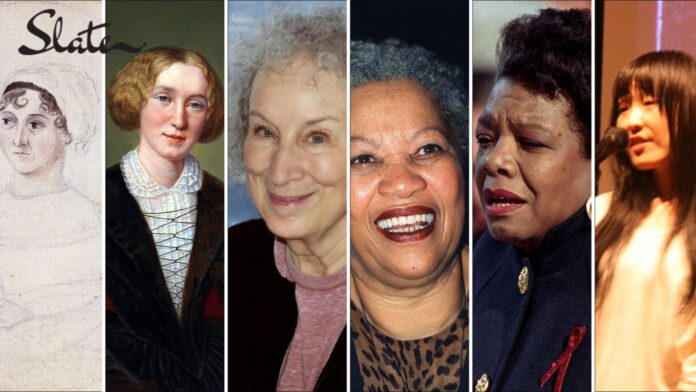By Eleanor A. Sangma
In the 18th and early 19th centuries, writing was considered to be ‘unladylike’. The idea of women selling their written work for money was considered an act akin to prostitution.
Pseudonyms were common, and so were books published anonymously. The Brontë Sisters wrote under male pseudonyms – Currer, Ellis and Acton Bell. Mary Ann Evans is better known by her own male pseudonym, George Eliot. Jane Austen, a beloved of bibliophiles, published her first book Sense and Sensibility as written: “By a Lady”. She eventually passed away without having published any of her work under her real name.
Many seasons have passed, and we have come a long way since then. The world has witnessed literary giants such as Margaret Atwood, Toni Morrison, and Maya Angelou, among many others, achieve immense success while retaining their identities.
However, if one looks at many of the book recommendations available online, it’s hard not to notice the inconsistency. Most of the reading lists and recommendations most often include western authors with books written in English.
According to Chad Post of Open Letter, a publishing house devoted to world (translated) literature, only 28.7 per cent of books in translation between the years 2008 and 2018 were written by women authors.
Noticing this glaring disparity, a young scholar and blogger Meytal Radzinski started the Women in Translation Movement at the end of 2013. In 2014, she would successfully launch Women in Translation Month (#WIT Month), which has been celebrated in August each year since then.
It is an ode to women writers across the world, with an aim to promote and celebrate them as much as one does writers in the English language.
Started by a lone bibliophile, WIT Month has now become an annual celebration within the literary community across the world. It aims to make international literature more accessible to English speakers while recognising the diverse identities of these writers.
The movement, along with the WIT month, is undoubtedly rooted in the bigger feminist movement.
“Feminism can’t and shouldn’t be limited in whose voices are heard or given space. This is such a central concept in modern feminist discourse, but, for some reason, it’s still one that is mostly taking place in English and through a very Anglo-centric lens,” said Radzinski in an interview.
The onus of inclusion, she feels, is on the publishers, translators as well as readers.
The female experience is different for each one, ruled by the culture and environment that they have lived in. Books provide a doorway to experience the same, even if just through the written word. These authors paint colourful images in the mind of the reader, welcoming us through glimpses into a world entirely and uniquely their own. Confining oneself to a single language narrows our understanding of the world and all it has to offer.
In a male-dominated sphere, the movement provides a much-needed space not just for women, but also for the marginalised voices of transgender, non-binary as well as intersex people.
A reader explores different genres of books — from non-fiction and science fiction to romance and horror. It’s high time we explore different perspectives and listen to diverse voices.
Some of these women authors in translation include Japanese writers Yoko Ogawa, and Mieko Kawakami and Korean writers Han Kang and Bae Suah.
Mexican author Cristina Rivera Garza’s gothic piece, The Iliac Crest, questions the fixed notions and definitions people have of the world around them; Turkish novelist Elif Shafak beautifully explores identity and the cost of war in her The Island of Missing Trees; Jacqueline Harpman’s I Who Have Never Known Men, initially published in French, speaks about freedom and identity.
These names are just a few amongst many who have told and continue to tell fascinating stories, often written through the lens of culture and gender. For a reader to not give these authors a chance, would be a grave injustice to their stories.
Each time I pick up a title translated to English, I’m often filled with a sense of longing, and they open my mind up to the experience of a new world. After all, why are there so many books in the world, yet not enough time in one lifetime to read all of them?


